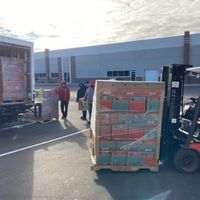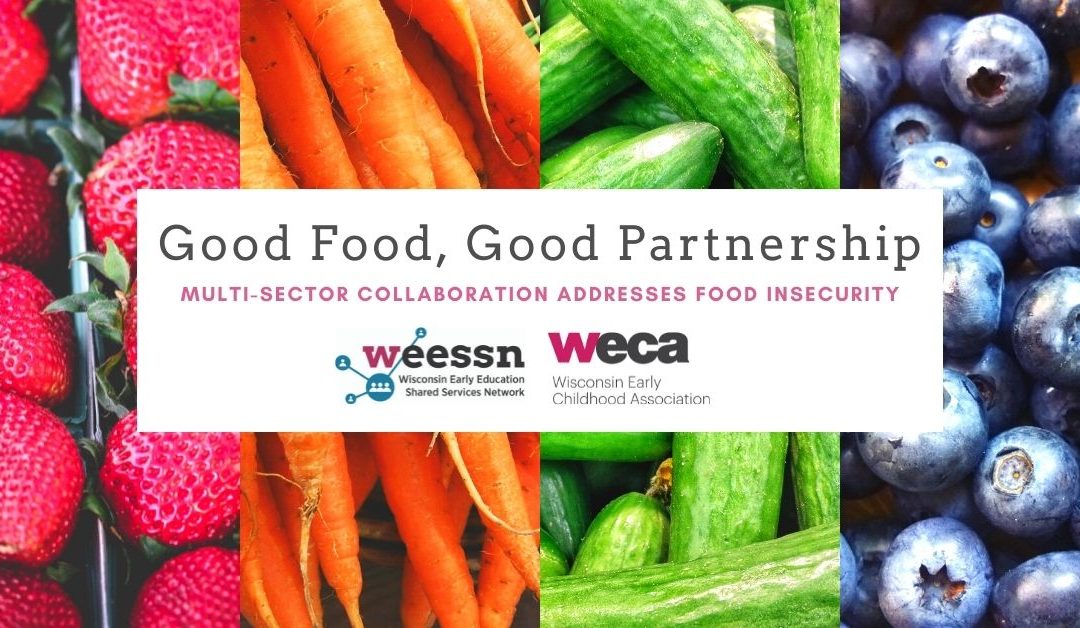Good Food for All. That was the goal – and it was achieved.
This recent 12-week pilot program assisted families in the Madison and Milwaukee areas with receiving a weekly stock of fresh produce. The initiative was truly a special tribute to the power of innovative collaboration between the early care and education sector and food systems.
Most specifically, the Good Food for All program was a shining example of the power of a motivated, multi-sector coalition coming together to provide good nutrition and food planning habits to Wisconsin children and their families and caregivers.
 These 50 servings of fruits and vegetables weekly – or each family member at least two servings of produce a day – allowed families to have significantly more produce in their diets than they may otherwise have had. Also important was that it came with the hope it will encourage new healthy meal planning habits that continue long after participation in the program.
These 50 servings of fruits and vegetables weekly – or each family member at least two servings of produce a day – allowed families to have significantly more produce in their diets than they may otherwise have had. Also important was that it came with the hope it will encourage new healthy meal planning habits that continue long after participation in the program.
At WECA and the Wisconsin Early Education Shared Services Network (WEESSN), we couldn’t be more excited about or proud of the program and its success. That’s because the success means we’re providing a vital service: Coming together to nourish children. This program was especially unique because it met families where they are and where they have established trust with the professionals who care for them – their child care programs.
“This gives them the opportunity to not only access help but to ask for help from those that they trust the most, and that’s so very important,” said state Sen. LaTonya Johnson of Milwaukee, who is a former child care provider.
“I can’t thank you enough for making this program possible, for thinking of our children and their families. Because we know if we can do whatever’s possible to save just one child, one family, then we have already done more than enough, but the object here is to make sure no child goes hungry – that their families have the resources that’s needed that are so many times forgotten.”
WEESSN’s connection to and service of child care programs in the Madison and Milwaukee areas allowed it to be an especially crucial resource of communication and coordination for the pilot program. That’s important when you’re navigating the logistical complexities of delivering more than 358,000 pounds of fresh produce to the families and staff enrolled in 62 of WEESSN-enrolled child care programs.
“It does make sense to leverage a network of child care programs – it does meet parents where they already are, to get them things they may need,” said Paula Drew, WEESSN Co-Director. “It does make sense to work together because that’s what community does.”
 The partnership between WEESSN, Healthy Early, Partnership for a Healthier America, Kids Forward, Community Action Coalition, American Transit and Feeding America Eastern Wisconsin was invaluable in achieving the goal of nourishing not only families’ plates but also healthier futures in the process. It was critical work in addressing the complex issues surrounding food insecurity.
The partnership between WEESSN, Healthy Early, Partnership for a Healthier America, Kids Forward, Community Action Coalition, American Transit and Feeding America Eastern Wisconsin was invaluable in achieving the goal of nourishing not only families’ plates but also healthier futures in the process. It was critical work in addressing the complex issues surrounding food insecurity.
“We needed everybody to come together as that village to make this project happen,” Drew said. “The really beautiful thing is that we’re now connected.”
Ruby Grisby, a Milwaukee child care provider, said parents, caregivers and children were incredibly grateful for the food they received, and she said she is pleased to see the connection and collaboration between child care and food systems to support communities.
“I hope programs like these and others will be able to serve our community because it is really, really needed in our community and other communities,” she said. “Every individual doing his or her part in making these program work – I take my hat off to you. I’m proud to be a part of these programs.”

